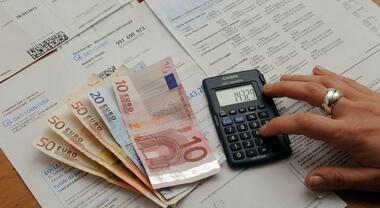
When it comes to renting, there are certain things that you know without being told. You know you’re going to have to pay your monthly rent, of course. And your utility bills, naturally. There’s probably some kind of municipality tax, too.
But you probably also have some assumptions – about both costs and other terms and conditions – that might well be mistaken when it comes to renting an apartment in Italy. And because they’re standard here, nobody’s likely to mention them to you – they’ll assume you already know! So if you want to avoid any nasty surprises before you sign on the dotted line, keep on reading…
What don’t you know that you need to know?
Agency fee
If the property has been let through an agency, you will have to pay their commission: this is generally somewhere between 1 month’s rent and 15% of the annual rent, plus 22% IVA (VAT).
Security deposit
While this can be anywhere between 1 and 3 months’ rent, 2 or 3 months is common. It is generally paid to and held by the landlord. It should be refunded (with interest) at the end of the rental period, but this can take some time.
Fideiussione bancaria (bank guarantee)
The landlord – especially for more upmarket homes – may require a guarantee from your bank in addition to the security deposit. The annual cost of this, in addition to the initial application fee, is generally around 2-3% of the amount guaranteed.
Contract length and notice period
These are regulated by law: see my article here (add link to post on contract types) for more information, but essentially, rental contracts come in three main types: up to 18 months (contratto transitorio), 3 + 2 years, and 4 + 4 years. If you want a duration of less than 12 months – and certainly for contracts of less than 6 months – your only option may well be tourist accommodation.
In all cases, you’re tied in to the contract for its entire initial duration (even if you leave earlier, you’re still legally required to pay the rent). In addition, while the contratto transitorio expires automatically unless you and your landlord agree to renew it, for longer (3+2 and 4+4) contracts, you must give 6 months’ notice if you wish to leave at the end of the initial rental period of 3 or 4 years – otherwise the contract is renewed automatically.
The rent may be increased in line with the adjustments published annually by ISTAT (although this must be specified in the contract – if there is no clause mentioning an increase, the landlord can’t ask for one during the initial duration, and if they have opted for a particular tax regime called the cedolare secca, they can’t apply an annual increase under any circumstances). The landlord must give 6 months’ notice if they wish to increase the rent once the initial rental period has expired.
Condominium fee
This is not generally included in the rent. Typically, you can expect to pay around €100-€200 extra a month, although this may rise considerably for luxury condos with extra amenities.
Utilities
Again, in most cases these are not included in the rent. Check whether you will need to have them transferred to your name, or if they will stay in the landlord’s name and be subject to an additional payment on top of the rent.
Maintenance costs
Routine maintenance and repair costs for both household and condominium equipment are payable by the tenant. If the washing machine breaks down or the drains get blocked – it’s on you to get it sorted and pay the bill. If the lift or entry phone system stops working, you (like everyone else living in the condo) will have to pay your share of the repair costs. You can find a breakdown (in Italian) of who pays what here: https://www.studiolegale-online.net/locazioni_04.php#:~:text=Come%20si%20dividono%20le%20spese,carico%20del%20conduttore%20(inquilino).
Furnishings
Apartments let as unfurnished may not even have a kitchen, so be sure to check this. If the landlord promises to install a kitchen or any other furnishings or appliances, make sure this is written into the contract.
Contract registration, costs and implications
All rental contracts for a period of more than 30 days must be registered with the Agenzia delle Entrate. The registration fee (which is 2% of the annual rent, plus stamp duty) is split equally between landlord and tenant. If, however, the landlord has opted for the cedolare secca tax regime, registration is free.
Registration of the contract, as well as being mandatory, is necessary for you to be able to use that address as your domicile to apply for residency, and hence gain access to all the services (such as the Sistema Sanitaria Nazionale – the National Health Service) that hinge on having residency.
Still confused? If you need clarifications, explanations or a translation of any terms or conditions in a proposed rental contract, or if you’d like a hand to guide you through the entire process, count on me! You can book a free, no-obligation consultancy here: https://helpmaterome.youcanbook.me/